Recently, we took you through some of the key takeaways from Worktech Melbourne. As the event rolled into Sydney, we decided to delve a little deeper into a couple of important talks featuring leaders from Gallup, Veldhoen + Company and UTS.

April 12th, 2023
This year, Worktech has been in Melbourne and Sydney to explore the future of work and, of course, the workplace. The conferences bring together some of the people most closely engaged with those questions of the future of work, from real estate to technology and business.
One of the sessions in Sydney was led by Camilla Frumar, senior consultant at Gallup. Undertaking research across 160 countries, Gallup certainly has an international scope and claims to take research samples representative of 98 per cent of the world’s population. It means that their workplace insights have credibility.

Frumar defines wellbeing as “all the things that are important to how we think about and experience our lives,” emphasising that this means different things to different people. Variety and difference, then, are at the core of workplace needs if wellbeing is to be taken care of.
Gallup’s research – using both quantitative and qualitative data – is harnessed to outline several broad themes that are held universally in common. These fundamentals of wellbeing are summarised in five key categories: career, social, community, physical and financial.
Related: Five things we learned at Worktech Melbourne

Perhaps the most significant learning point is the importance of a holistic approach. No single one of these categories is sufficient alone – fixation on career alone, for instance, might only lead to burnout. The crucial issue for workplaces is finding a formula to marry wellbeing with engagement.
A similar point was made in a separate talk given by Eoin Higgins, senior consultant at Veldhoen + Company, and Alex Murphy, managing director of UTS College. Higgins speaks about the way of working as “a system of correlated parts,” an approach that seeks to centre human experience rather than just the workplace as a physical setting.
Murphy set out another series of core issues for the hybrid workplace: community, collaboration, creativity and connectedness. Tying it all together is trust – the idea that employees need to be given autonomy to work in ways that suit their individual needs in being productive. It’s the opposite approach to one that dictates a fixed quota of days in the office or set hours; what matters is productivity, not how it’s achieved.

Communication is the key in terms of leadership and management, according to Frumar. It is the number one skill required for effective leadership in a workplace that takes wellbeing seriously, particularly in terms of managers providing meaningful and regular feedback.
The modern, hybrid workplace is all about the human and the space. Hybrid fit-outs are required but not without open ways of working in which people are trusted to be autonomous and able to find a balance between productivity, wellbeing and engagement.
Worktech
worktechevents.com
Photography
Courtesy of Worktech

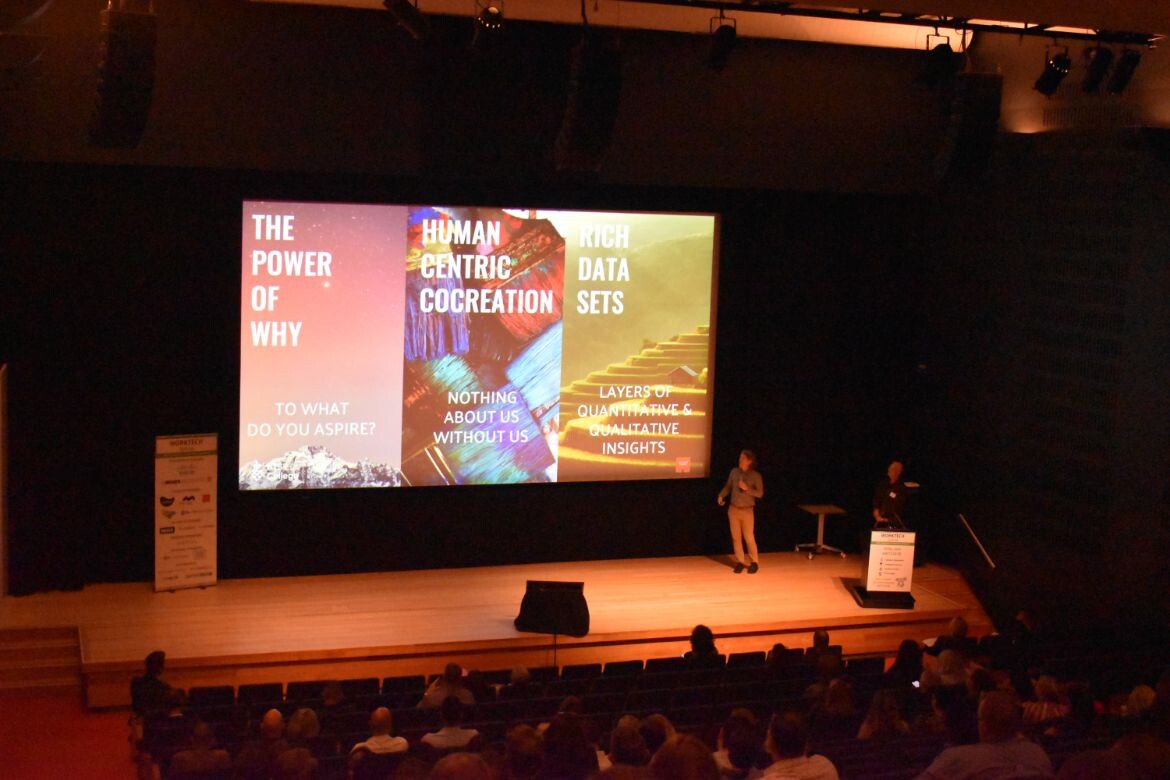


We think you might also like this story on Six Degrees in Melbourne.
INDESIGN is on instagram
Follow @indesignlive
A searchable and comprehensive guide for specifying leading products and their suppliers
Keep up to date with the latest and greatest from our industry BFF's!
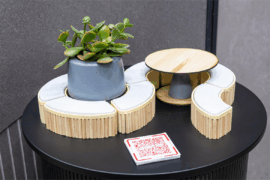
From the spark of an idea on the page to the launch of new pieces in a showroom is a journey every aspiring industrial and furnishing designer imagines making.
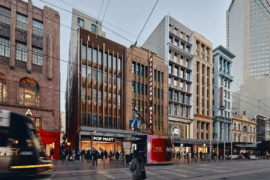
Merging two hotel identities in one landmark development, Hotel Indigo and Holiday Inn Little Collins capture the spirit of Melbourne through Buchan’s narrative-driven design – elevated by GROHE’s signature craftsmanship.

For a closer look behind the creative process, watch this video interview with Sebastian Nash, where he explores the making of King Living’s textile range – from fibre choices to design intent.
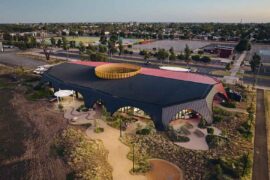
At the Munarra Centre for Regional Excellence on Yorta Yorta Country in Victoria, ARM Architecture and Milliken use PrintWorks™ technology to translate First Nations narratives into a layered, community-led floorscape.
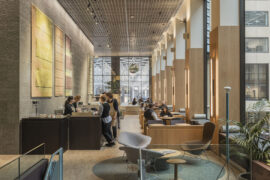
The Commons opens new Sydney and Melbourne locations by DesignOffice, blending hospitality, design and community.
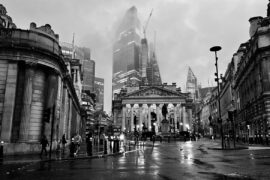
The built environment is all around us; would the average citizen feel less alienated if the education system engaged more explicitly with it?
The internet never sleeps! Here's the stuff you might have missed

Knoll unveils two compelling chapters in its uncompromising design story: the Perron Pillo Lounge Chair and new material palettes for the Saarinen Pedestal Collection.

From six-pack flats to design-led city living, Neometro’s four-decade trajectory offers a lens on how Melbourne learned to see apartment living as a cultural and architectural aspiration rather than a temporary compromise.